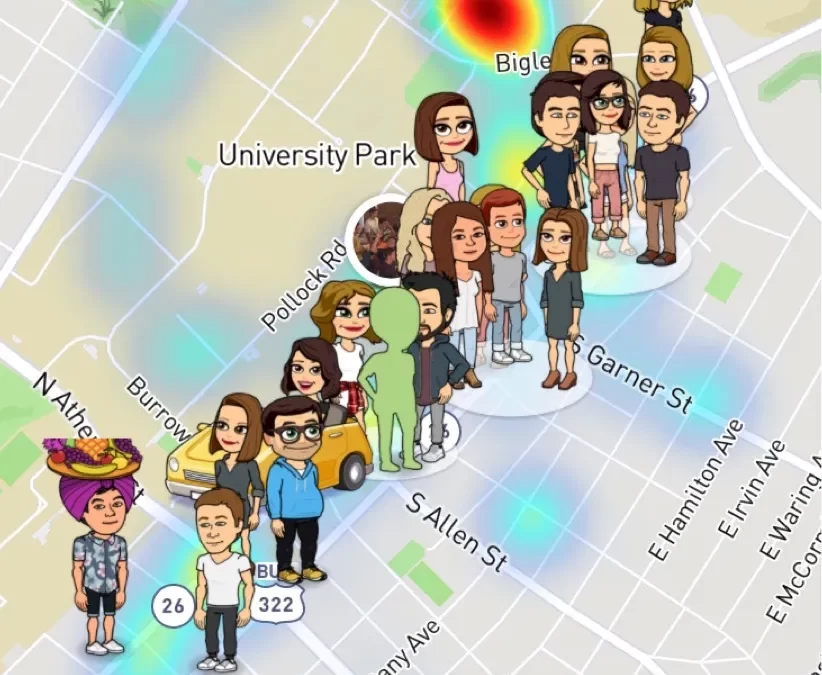Growing Up in a World of Constant Observation
When I was a teenager, I had a lot of breathing room between me and my academic mistakes. A bad report card or progress report arrived every six or so weeks. A bad grade on an otherwise good report card was hidden entirely. A lecture by my parents was either delayed by the postal service or never came at all. My social whereabouts were mostly private; unless someone’s mom happened to call my mom, nobody outside of the people I was with knew whether I was at a friend’s house or playing football on the school field. Photos of me were rare, taken on clunky cameras and stashed in albums that only came out at family gatherings.
Today’s teenagers inhabit another world entirely: a world where every grade, every location, every choice, and every angle of their face can be instantly known, recorded, and shared. They are living under a gaze so pervasive that it rivals the omnipresence once reserved for the divine.

How Digital Gradebooks Create Academic Anxiety
One of the quiet revolutions in parenting is the digital gradebook. Parents no longer wait for report cards; they can open an app and see today’s math quiz score. Not just the final grade, but the list of every missing homework assignment, every point deducted.
The effect is obvious. A client of mine, a thoughtful and hardworking teenager, described it perfectly: “It feels like my parents might watch me fail in real time.” For her, there’s no chance to regroup privately, no buffer where mistakes could be corrected before being exposed. Its intention is support, but its impact is constant surveillance, producing anxiety, self-consciousness, and the fear that each poor performance could be a disappointment.
Snapchat Location Sharing and Peer Surveillance
Many teenagers surveil each other to an extent that can feel draconian. Snapchat’s “Snap Map” feature allows friends to track your location at any moment. At first, it seemed harmless, a playful way to see who’s at Starbucks or the beach. But for many teens, it has created a new layer of social politics: if you’re at home, people wonder why; if you’re at one friend’s house, others feel slighted.
I worked with a client who used to spend time with a close friend after school. Recently, she stopped. Why? Because her other friends don’t like that friend, and she knew they would see her location on Snapchat and start drama. The technology itself isn’t the villain, her friends could in theory just trust her choices, but the constant exposure of her whereabouts created a surveillance-driven social trap.
What used to be private decisions about where you spent your time are now broadcasted to peers, open to judgment and gossip. For teenagers, friendship is no longer just about who you’re with but about who sees you being with them.
Why Constant Recording Shapes Teen Identity
Long before gradebooks and Snap Maps, many kids were already conditioned to perform. Parents have spent the last two decades recording every recital, every goal, every “cute thing” said at dinner. Phones made it effortless. The family camcorder was heavy and rare; the iPhone is always in your hand.
That constant recording builds a subtle lesson: you are always being watched, your life is always content. Teenagers who grew up with phones in their faces learned that their value is often in the highlight reel, not in the unfiltered moment. It isn’t malicious; most parents simply wanted to capture memories. But the effect is cumulative. Children raised under the lens internalize the sense that they are never quite off-stage.
When Surveillance Feels Like Divine Judgment
This isn’t an entirely new phenomenon. My best friend grew up in a strict religious environment where he was told constantly that God was watching him, judging him, and keeping a record of every mistake. The weight of divine surveillance haunted him. Every private thought was potentially sinful, every misstep noted in the cosmic ledger. He has spent thousands of dollars in therapy unlearning the “Sinner in the Hands of an Angry God” version of the divine.
Recalling his story, I can’t help but notice the parallel: with technology, we have created our own version of the judgmental, punishing omnipresent God. Instead of the Almighty recording your deeds, it’s parents, peers, and platforms. The judgment isn’t eternal damnation but social exclusion, parental disappointment, or digital humiliation. Which to the mind of a teenager, can feel worse than any lake of fire.
We have rebuilt the theology of constant judgmental observance with Snapchat and smartphones.
What Research Shows About Constant Surveillance
Psychologists have known for decades that being observed changes behavior. The Hawthorne Effect shows that workers improve performance when they know they’re being watched. More recent studies reveal subtler impacts: people cheat less, litter less, and even detect faces more quickly under surveillance. There’s even the “watching-eye effect,” where just a poster of eyes makes people act more prosocially.
But the flip side is just as real. Constant observation doesn’t just make people more ethical, it makes them more anxious, more conformist, and less willing to take risks. In monitored motor-task experiments, people underperform. In other words, when you know you’re being watched, you play it safe.
Apply that to teenagers, and you begin to see the cost. Risk-taking, exploration, and privacy are essential parts of adolescence. But what happens when every step is observed, recorded, and evaluated? The teenage years become less about discovery and more about performance.
Results of Constant Surveillance on Teen Mental Health
For many teenagers, this endless scrutiny produces not resilience but a constant state of anxiety. It creates the sense that every moment is being judged: a quiz score, a missed free throw, an afternoon hangout, a photo among friends. Each small event is formally or informally evaluated by someone.
This sends kids into fight, flight, or freeze and helps explain why something as ordinary as checking out at the grocery store can feel terrifying, as if there is a script they must follow to avoid embarrassment. The pressure around milestones like college admissions is intense. Many teenagers and young adults I work with and teach admit openly they dread adulthood, not because they don’t have ambition, but because life appears to be an exhausting gauntlet of expectations they cannot possibly keep up with.
The Culture of the Gaze
We are raising a generation that has never known the feeling of being fully alone. Privacy isn’t just disappearing, it’s suspicious. If you turn off location sharing, people ask why. If you don’t post your night out, did it even happen? The culture of the gaze demands proof: proof of where you are, who you’re with, and whether you’re living a life worth watching.
In a sense, this is the logical end of the social media economy. Attention is currency, and the cost of earning it is constant exposure. What began as parents wanting memories and teens wanting connection has spiraled into a digital panopticon, everyone both the watcher and the watched.
What We Lose Without Privacy
Privacy is not just the absence of observation. It’s the space where identity takes root. It’s the messy, awkward, trial-and-error period of adolescence. Without it, teenagers are left curating instead of experimenting. They rehearse acceptable versions of themselves rather than discovering who they might become.
When a teenager tells me she avoids her close friend’s house to dodge Snapchat drama, I see the stakes clearly. A friendship that could sustain her, comfort her, and anchor her is sacrificed to the god of the gaze. And when parents say, “We just want to know how you’re doing in school,” they often don’t see that the real lesson being taught is: you are always being watched, and you cannot escape our eyes.
Reclaiming the Unseen
If there’s hope, it lies in carving out spaces where the gaze doesn’t reach. That might mean encouraging kids to turn off location sharing, resisting the urge to check gradebooks daily, or putting the phone down at dinner. It might mean reminding teenagers that they deserve moments of invisibility, that being unseen is not suspicious but sacred.
Because adolescence isn’t just about becoming visible to the world. It’s also about learning who you are when no one is looking. If you want help navigating these difficult parenting decisions and finding a healthy level of parent oversight while not overburdening your teen, please reach out to our team.

